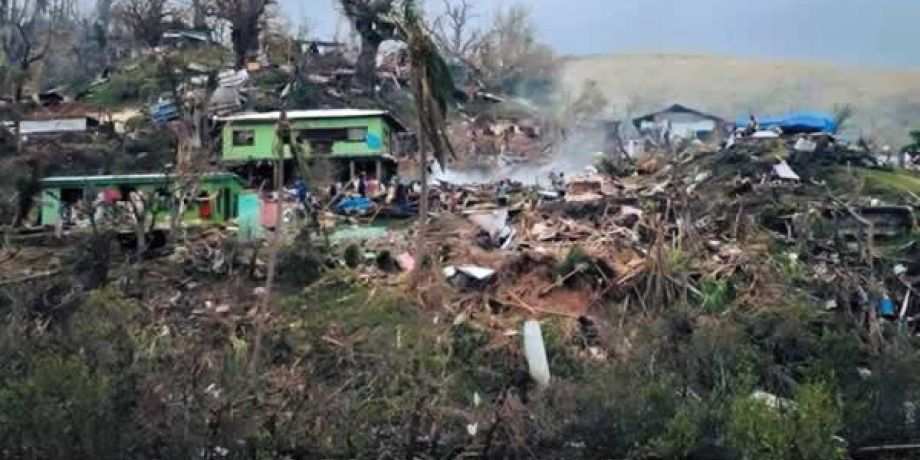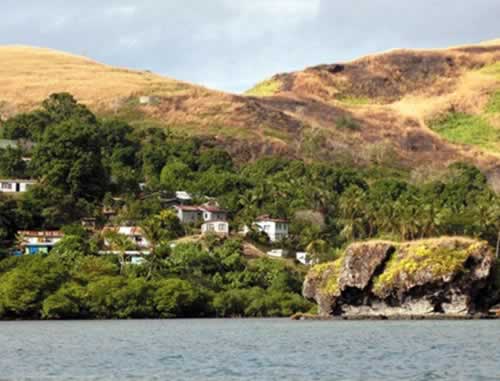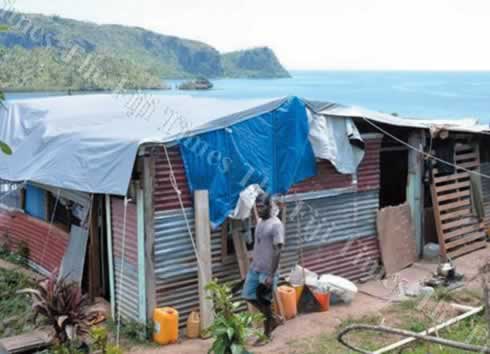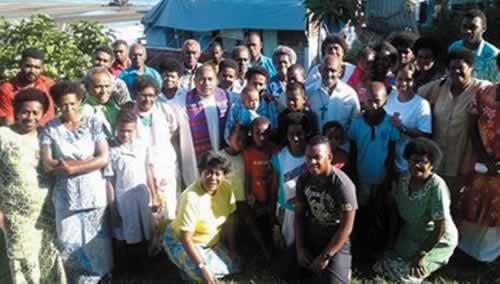
Outreach to Veidrala
Veidrala is located on the Northeast of Vitilevu under the province of Nakorotubu in Ra. It is a 2 ½ hours bus ride from Suva, the capital of Fiji, followed by another 45-minute boat ride to reach Veidrala.
The Village

The village does not have a road to reach the highway. The school children either walk or travel by boat after lunch on Sundays to reach the respective schools they are attending. The school provides dormitries for boarding and the children return to the village on Fridays.
Despite all these challenges in education, Veidrala has provided sportsmen/women, children representing the province for athletic games, and Milo katchi rugby and netball (an annual competition for primary school students in Fiji), government ministries and as church pastors and more.
Source of Income
Since the village is situated on the coastal area, the abundance of coconut and marine life is harvested as their source of income. The villagers leave the village with the produce on Wednesdays and supply to the "middle man" who buys produce at a lower price and sells it at double the price in the markert. Other villagers prefer to take their supplies to the market at Rakiraki or Lautoka and return to the village when all their produce is sold.
Cyclone Winston
The village of Veidrala (along with many others) was ravished on the night of February 20, 2016 by "Winston,"a category 5 cyclone, the worse and strongest in recorded history. The village was in the worst position and was the hardest hit. The aerial footage taken reveals a demolished village with only five houses standing. The sweat, the struggles, the challenges, the joys, the excitement and the fruit of hard labor from their ancestors in building up the Veidrala community were all blown away in the blink of an eye.
As a community of about 100 subsistence farmers, they have no savings, and rely on their nearby farmer neighbous for food and marine resources, which were ravished as well, but perhaps to a lesser extent.
Getting Up

The communal lifestyle in the "Itaukei" society, (Fijians) of planning, deciding, and doing things together was one coping mechanism in rebuilding the community and their lives. This is one of the factors that contributes to maintaining a "healthy relationship" in the community. Relief assistance that has been received for the past ten months has helped the community have some hope for the future, which was all blurred and confused in the days, weeks and months immediately after the cyclone. Many of the villagers are still living in tents and under tarpaulin and sheets of roofing iron as shelters.
Columban Companion in Mission
At the 2016 annual gathering for the Columban Companion in Mission (CCIM) it was decided to do a follow up visitation to Veidrala. The group of fifteen members from Ba, Labasa and Suva left on December 4 and returned on December 10. The group was accompanied by Columban Fr. William Lee until Wednesday and on Thursday Fr. Iowane Gukibau joined the group until Saturday. The community was so blessed to have these two energetic, talented, young and honourable priests to celebrate Mass.
We arrived on Sunday and introduced ourselves and the purpose of our visitation. With the theme "In This Journey We Acknowledge and Celebrate the Different Gifts We Have, Trusting In God's Mercy," the purpose of the visitation was to visit with people, to participate in their daily routine, participate in talanoa (telling stories) and do house visitation.
The former lay missionnaries facilitated two of the sessions. Vosita Lewanisaurua facilitated "Trauma and Timeline" on Monday. On Tuesday Paulo Rabakewa and Vitalina Lubi facilitated "Community Empowerment."

The children's sessions were facilitated by Vaulina Sakulu and Liezl Ladaran. The chidren acted out the lesson being learned from the sessions. The children started with the creation story and a song followed by acting out their stories during and after the cyclone. As a proffesional and a creative teacher, Vaulina collected the responses from the children and created the lyrics and a tune for the song.
House Visitation and Talanoa (Talking) Sessions
Talanoa (telling stories) is a widely available and acceptable tool for Fijians, but is often dismissed, shallowly written off and side-tracked as a cultural nuance. Talanoa is about creating open space; it's about levelling platforms in colloquial expression. It's about "off loading" and not surprisingly "gossiping." It is a personal encounter with people.
The house visitations include the tanoa in the evenings, at the kitchen, going out fishing, going to the farms or simply sitting down in the evening and overlooking the bay with members of the community helped them to let their stories out.
Ongoing Community Concerns
Ten months after the cyclone families are still living in tents and scraps put together to build dwellings. There is no further update from the government on benefits for building materials. The villagers need roofing iron and other building materials to rebuild their houses.
Coconuts are the villagers main source of income, and the trees were destroyed by the cyclone and haven't recovered. The community needs coconut shoots.
Another source of income is the marine life. The Government has appropated all fishing rights from the people who are now required to get licences to fish their traditional fishing grounds. Fishing rights are hindering their ability to fish in their own fishing ground to make a living.
Parents are worried about the children's school and education. As they use to say, "Auri'a se wara.. na vano qoi ena vano ga..." (Take it or leave it, this journey will continue…). Despite their daily struggles to make ends meet, the community still willingly shares the little things they have, and we with them.
Columban Fr. John McEvoy provided this reflection by Paulo.